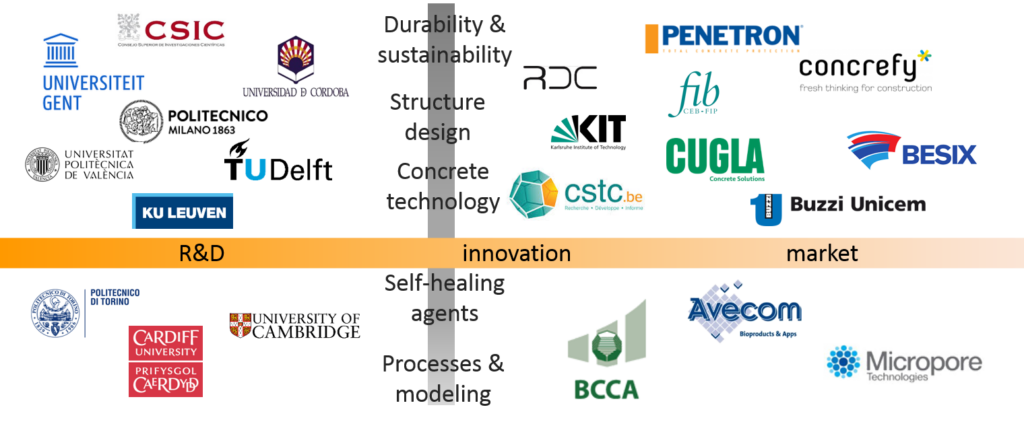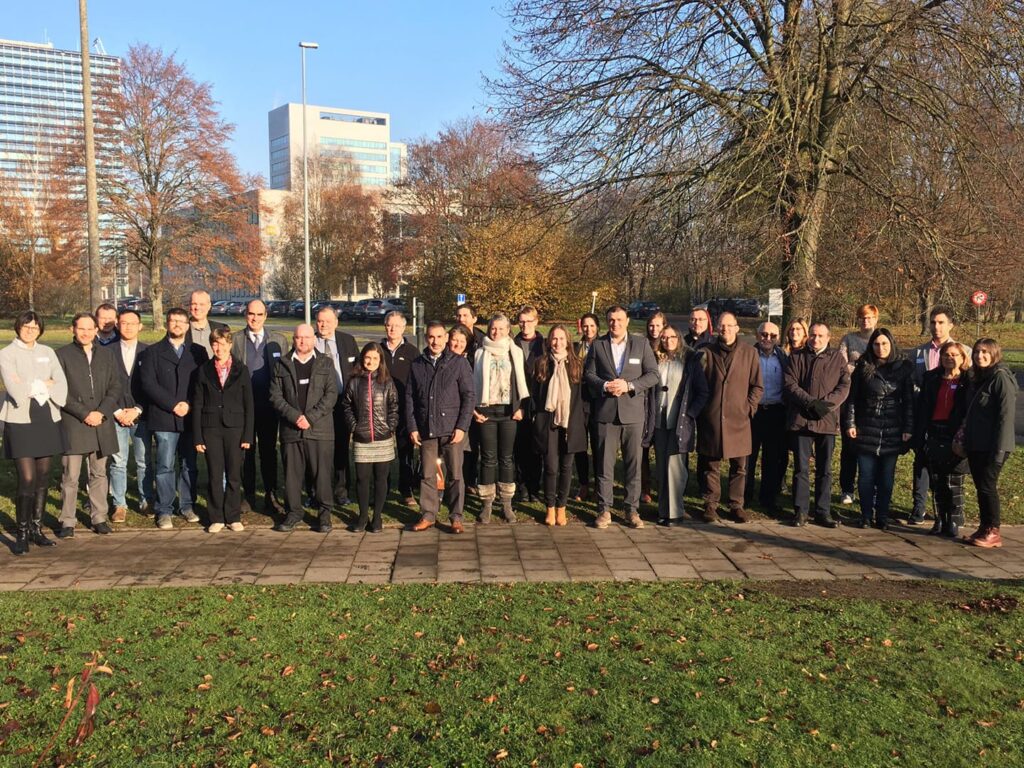The appearance of small cracks in concrete is almost unavoidable, not necessarily causing a direct risk of structural safety, but surely impairing its functionality, accelerating its degradation, and diminishing its service life and sustainability. The loss of performance results into the need of increased investments on maintenance and/or intensive repair/strengthening works. The benefits of self-healing concrete, mortar and grout, in which those defects are repaired autonomously, will increase in service life of structures, reduce maintenance and repair costs, save raw materials and reduce waste production, avoid CO2 emissions and reduce traffic downtime and accidents.
SMARTINCS will move this technology well beyond the state-of-the-art by several innovative approaches.
SMARTINCS will implement new life-cycle thinking and durability-based approaches to the concept and design of concrete structures, with self-healing concrete, repair mortars and grouts as key enabling technologies. This will create a breakthrough in the current practice of the construction industry, which is characterized by huge economic costs related to inspection, maintenance, repair and eventually demolition activities and additional indirect costs caused by traffic congestions during maintenance and environmental effects.
SMARTINCS will train a new generation of creative and entrepreneurial early-stage researchers in prevention of deterioration of
(i) new concrete infrastructure by innovative, multifunctional self-healing strategies and
(ii) existing concrete infrastructure by advanced repair technologies.
The project brings together the complementary expertise of research institutes pioneering in smart cementitious materials, strengthened by leading companies along the SMARTINCS value chain, as well as certification and pre-standardization agencies. They will intensively train 15 early stage researchers to respond to the clear demand to implement new life-cycle thinking and durability-based approaches to the concept and design of concrete structures, minimizing both the use of resources and production of waste in line with Europe’s Circular Economy strategy. The new generation of researchers will be immediately employable to support the introduction of the novel technologies.
Project website: www.smartincs.eu
The scientific objectives are attained by joint PhD research and envisage:
(i) To develop and model innovative self-healing strategies for bulk and local application, including optimization of mix designs and development of multi-functional self-healing agents with attention to cost, applicability and environmental impact.
(ii) To scientifically substantiate and model the durability of self-healed concrete and repaired systems for an accurate service life prediction and to integrate self-healing into innovative service-life based structural design approaches to foster the market penetration through an innovative life-cycle thinking.
(iii) To quantify and prove the eco-efficiency of newly developed smart concrete / mortars by life cycle assessment modeling.
The planned activities within the ETN are represented in the work package structure. Training is given to the early stage researchers by their individual PhD projects which all fit within the scientific work packages 1-4, dealing with improved self-healing concrete (WP1), advanced local (self-)repair (WP2), durability, service life and sustainability (WP3) and technology transfer and entrepreneurship (WP4).


This project has received funding from the European Union’s H2020 research and innovation programma under grant agreement NO860006

